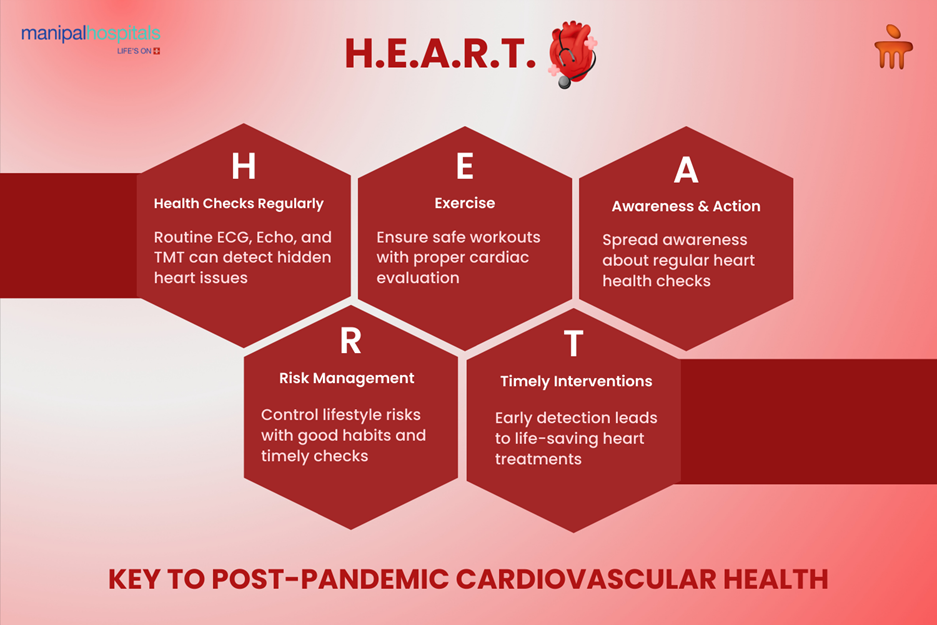Heart disease is one of the leading causes of death worldwide. Early medical treatment and lifestyle changes can significantly improve heart health. Appropriate medical care and healthy lifestyle changes allow patients to manage heart disease and may help repair some of the tissue damage it causes. This blog explores symptoms of heart failure, the latest research, and diet to help improve cardiac care.
Synopsis
Understanding Heart Disease & Heart Failure
Heart disease constitutes multiple medical conditions that impact how the human heart works. It develops over time due to a complex interplay of genetic and environmental factors like poor diet, a sedentary lifestyle, and intake of tobacco products, which may result in arterial plaque accumulation.
The development of heart disease consists of the following sequence:
-
Plaque Build-up: Heart disease develops when plaque builds up in the arteries, narrowing the blood vessels and increasing the risk of a heart attack.
-
Risk Factors: Heart disease is more likely as people progress through high blood pressure, high cholesterol, diabetes, and smoking, even though symptoms may not be apparent during the initial stages of the disease.
-
Progressive Damage: Over time, heart ailments can lead to complications like heart failure, arrhythmias, and increased strain on the heart, making treatment and lifestyle changes crucial.
Heart failure, distinct yet closely linked, is an advanced stage of heart disease where the heart muscle gradually weakens and loses its ability to pump blood efficiently enough to meet the body's metabolic demands. This is a progressive condition that can stem from underlying heart problems, like long-standing high blood pressure, extensive coronary artery disease (often after a heart attack), heart valve disorders, or even certain infections.
Common Symptoms of Heart Failure
Heart failure occurs when the heart cannot pump blood efficiently, leading to fluid buildup and reduced oxygen supply to vital organs. Recognising the symptoms of heart failure is crucial to managing the condition and improving quality of life. Here are the key symptoms of heart failure to watch for:
-
Shortness of Breath: Difficulty breathing, especially when lying down or during physical exertion, is one of the most common symptoms of heart failure.
-
Swelling in the Legs, Ankles, or Abdomen: Fluid retention due to heart failure causes swelling, indicating that the heart struggles to pump blood effectively.
-
Fatigue: Persistent tiredness or lack of energy can occur as the heart struggles to provide adequate oxygen and nutrients to the body.
-
Persistent Coughing or Wheezing: Coughing, especially when accompanied by pink or frothy sputum, may indicate fluid in the lungs, a common sign of heart failure.
-
Rapid or Irregular Heartbeat: Heart failure can cause the heart to beat irregularly or too fast, which may feel like palpitations or fluttering.

Latest Research & Treatments
In recent years, significant breakthroughs have been in treating heart disease, offering hope to those diagnosed. Here are some of the most exciting latest research & treatments for heart disease:
-
Innovative Medications: New classes of medications, such as PCSK9 inhibitors and SGLT2 inhibitors, are improving cardiac care by lowering cholesterol and reducing blood sugar levels, which helps prevent plaque build-up.
-
Minimally Invasive Procedures: Interventions like angioplasty and stent placement allow our best cardiology doctor in Bhubaneswar to open up blocked arteries with minimal recovery time, improving blood flow and reducing the effects of heart disease.
-
Gene Therapy and Stem Cells: The latest research is exploring the potential of gene therapy and stem cells to repair heart tissue damaged by heart disease. This could provide a way to regenerate healthy heart cells in the future.
-
Lifestyle Modifications: Ongoing studies show that a cardiac health diet and regular exercise can significantly improve heart function and reduce the progression of heart disease.
Diet for Heart Failure: Foods to Eat and Avoid
A cardiac health diet is one of the most effective ways to manage heart disease, such as heart failure. The foods you eat can significantly impact how well your heart functions. Here’s a guide to a diet for heart failure, focusing on beneficial foods and those to avoid:
| Foods to Include | Foods to Avoid |
|
|
Conclusion
While heart disease can be a serious condition, the good news is that early intervention, cardiac care, lifestyle changes, and a cardiac health diet can make a significant difference. With ongoing research and the right treatments, it’s possible to slow or even reverse some aspects of heart disease. Understanding the symptoms of heart failure, taking proactive measures, and focusing on a balanced diet can improve the quality of life in affected individuals. Always consult an expert cardiologist in Bhubaneswar to tailor a plan that suits your needs.
FAQ's
While heart disease can’t always be fully reversed, it can often be managed well with certain lifestyle changes, medications, and interventions as needed that improve heart function and prevent further damage.
A cardiac health diet rich in fruits, vegetables, whole grains, and omega-3 fatty acids can help manage heart failure and improve overall health.
The early symptoms of heart failure include shortness of breath, fatigue, swelling in the legs, and irregular heartbeat.
The prevention of heart disease involves managing risk factors like high blood pressure and cholesterol, eating a healthy diet, exercising regularly, and not smoking.
Heart disease treatment primarily includes lifestyle changes and medications. Emergency procedures like angioplasty and stent placement are performed when narrowing or blocked arteries are detected.






















 6 Min Read
6 Min Read





















